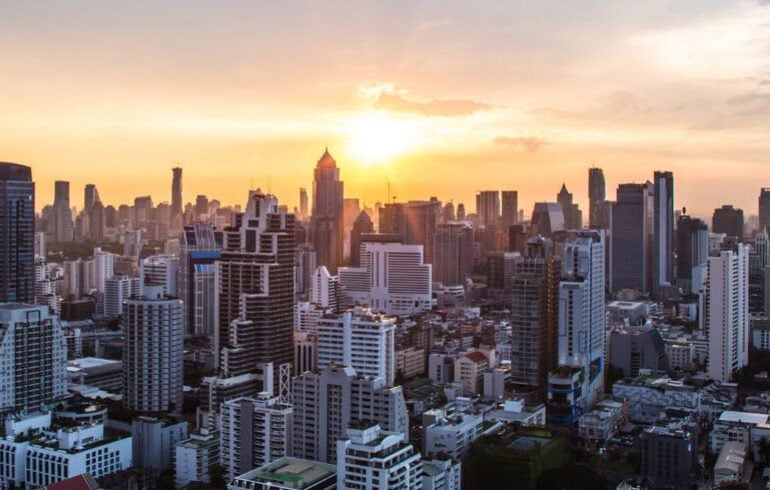The renewable energy sector is shining a bright light on the African continent’s M&A sector, with growing investment in the sector expected in the next few years. To improve direly needed access to power for all Africans and to fulfill net-zero commitments, public and private investment and the sourcing of innovative, alternative financing for the energy transition are ramping up in countries across the continent.
Numerous initiatives aimed at building Africa’s climate resilience were announced at the 28th Conference of the Parties (COP 28) in Dubai in December 2023, including the establishment of green banks, greenhouse gas trading systems, public-private partnerships, transformative financing measures such as green bonds and sustainability-linked instruments, as well as a host of new funding pledges. Some of the key announcements affecting Africa are listed below.
The capabilities and use cases for AI and ML are moving at lightning speed, and the law is trying to catch up. Legal, compliance and governance functions must manage risk and develop processes and policies for AI projects that work with the law as it is today, while also anticipating the coming wave of legal, regulatory and technological change.
In this webinar series, our EMEA team discussed the IP and data privacy issues raised by AI, the developing regulatory landscape and practical issues when contracting for AI.
On 27 June 2023, the US Departments of State, the Treasury, Labor, Commerce, and Homeland Security, and the United States Agency for International Development issued a joint advisory — the Africa Gold Advisory — that (i) highlights the opportunities and specific risks raised by the gold trade across sub-Saharan Africa and (ii) encourages industry participants to adopt and apply strengthened due diligence practices to guard against such risks.
Today’s global economy demands that businesses expand beyond borders, but they face hurdles from customs, as well as regulatory barriers in different countries and regions that make this expansion challenging. The South African Revenue Service Authorised Economic Operators programme offers numerous benefits for businesses trading within the regional market of the Southern African Custom Union and internationally. Such businesses include manufacturers, importers, exporters, brokers, carriers, consolidators, intermediaries, ports, airports, terminal operators, integrated operators, warehouses, distributors, and freight forwarders.
Almost half of the population of Africa does not have access to electricity. It is, therefore, critical for the continent to increase its access to a clean, decarbonized, decentralized energy supply.
To enable this energy transition, countries across the continent are implementing policies that take into account the energy crisis. Alongside other jurisdictions, they are also launching initiatives and providing funding, investments and grants for African renewable energy projects.
In 2022, a group of African countries launched the African Carbon Markets Initiative with the aim of eventually producing 300 million carbon credits annually. To allow countries to voluntarily cooperate with each other to achieve emission reduction targets as set out in their Nationally Determined Contributions, Article 6 was introduced in 2021. Under Article 6, countries will be able to transfer carbon credits earned from the reduction of their greenhouse gas emissions to other countries to meet their climate targets.
In June 2023, the Johannesburg Stock Exchange (JSE) proposed amendments to the JSE Listings Requirements including a new section which contains the listing requirements of the Black Economic Empowerment (BEE) Segment of the JSE. Among other things, these requirements include that trading in BEE securities must be restricted to a BEE-compliant person pursuant to the use of either a BEE contract or a BEE verification agent. The JSE has invited comments on the proposed amendments by 17 July 2023.
Hydrogen markets in Africa are expected to grow exponentially but there are still multiple barriers to the widespread development of decarbonized hydrogen. Each energy sector investment faces challenges in the form of infrastructure gaps, policy, regulatory, economic and financial barriers. A recent positive development in this regard is the announcement that a dedicated blended finance fund, SA-H2, has been launched to raise USD 1 billion for the construction of green hydrogen projects in South Africa. Once established, the SA-H2 will join the SDG Namibia One Fund to offer a blended finance solution for Southern African’s green hydrogen sector.
The African Growth and Opportunity Act (AGOA), which allows duty- and quota-free exports from eligible African countries into the United States, is due to expire in 2025. There has been much speculation that it might be replaced with new trade agreements between the two regions that will follow the free trade policies of the African Continental Free Trade Area agreement and the reciprocal trade initiatives promoted as part of the US’s Prosper Africa initiative. It has also been suggested that an evolved AGOA might be the way forward, creating an increasingly mutually beneficial trade relationship between the two regions.



